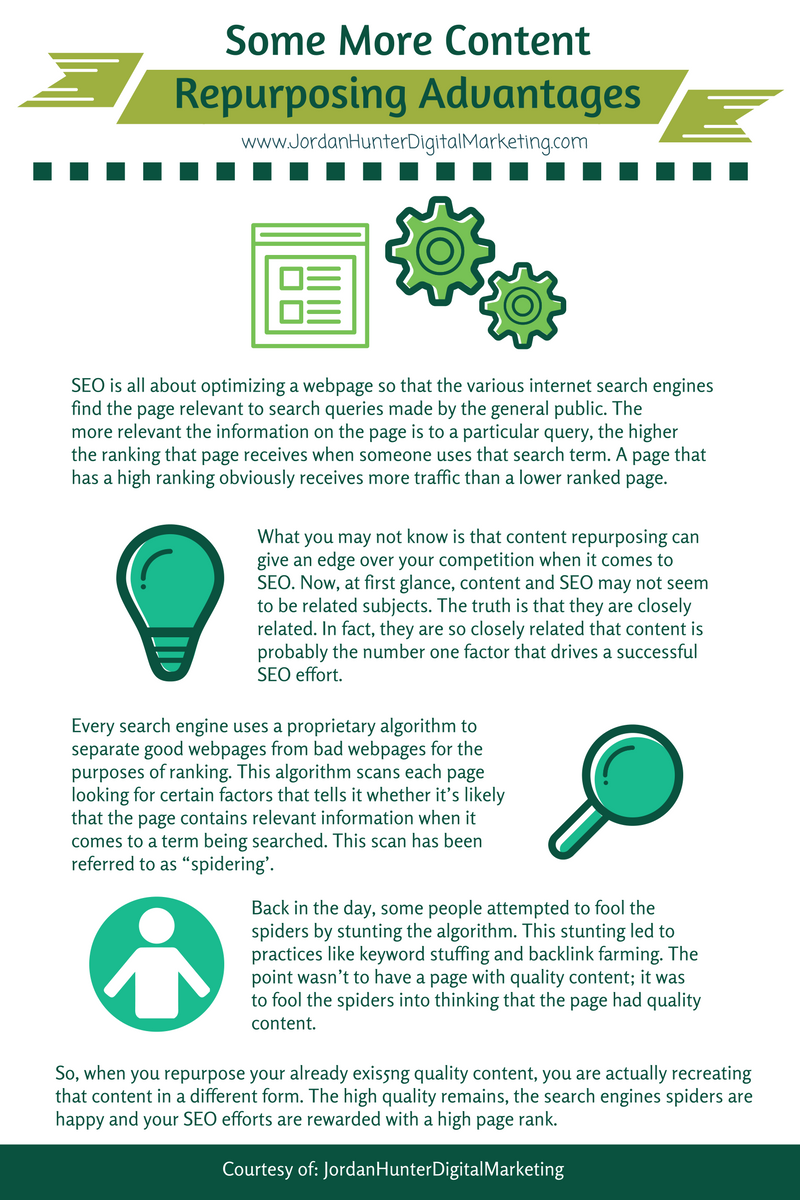
You probably know a thing or two about search engine optimization or SEO. SEO is all about optimizing a webpage so that the various internet search engines find the page relevant to search queries made by the general public. The more relevant the information on the page is to a particular query, the higher the ranking that page receives when someone uses that search term. A page that has a high ranking obviously receives more traffic than a lower ranked page. This higher traffic results in more visitors which, if the page is selling something, translates into more customers and more revenue. The bottom line is that if you’re doing business on the Internet then SEO is a critical issue.
What you may not know is that content repurposing can give an edge over your competition when it comes to SEO. Now, at first glance, content and SEO may not seem to be related subjects. The truth is that they are closely related. In fact, they are so closely related that content is probably the number one factor that drives a successful SEO effort. However, in order to explain how content and SEO are related, we have to go back a few years and look at how things stood on the Internet back then.
Every search engine uses a proprietary algorithm to separate good webpages from bad webpages for the purposes of ranking. This algorithm scans each page looking for certain factors that tells it whether it’s likely that the page contains relevant information when it comes to a term being searched. This scan has been referred to as “spidering’. All the major search engines want to provide a high quality user experience. That’s why the spiders search the page separating the wheat from the chaff, so to speak.
Back in the day, some people attempted to fool the spiders by stunting the algorithm. This stunting led to practices like keyword stuffing and backlink farming. The point wasn’t to have a page with quality content; it was to fool the spiders into thinking that the page had quality content. Well, as with all stunts, this one eventually backfired. The search engines got wise and made changes to their algorithms that ensured only pages with actual quality content would get ranked.
So, when you repurpose your already existing quality content, you are actually recreating that content in a different form. The high quality remains, the search engines spiders are happy and your SEO efforts are rewarded with a high page rank.







